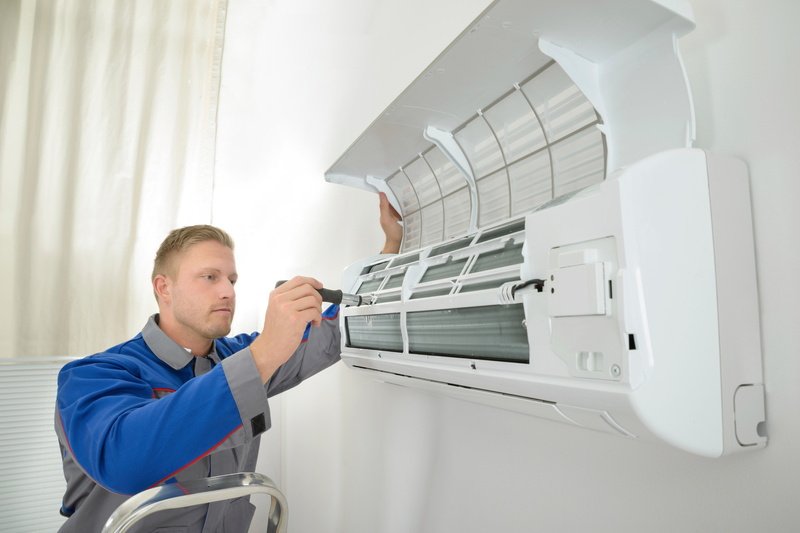Don’t Ignore These 3 Ductless Mini Split AC Problems
As we start turning on our air conditioners again this season, take a moment to really pay close attention to your ductless mini split system. Since this unit consists of separate air handlers, you’ll want to look at each one individually to ensure that no issues have cropped up. It’s easy to accidentally forget about one of the units in a room that you might not use as often. The issues we’ve listed below will cause symptoms that are hard to ignore. In other cases, however, your mini split system might be suffering from issues that aren’t obvious. That’s why it always counts to have an AC repair expert to inspect your system for you.
1. Broken Blower
The blower is sort of what it sounds like—a fan that blows air through the unit. It’s a crucial part of the system’s operation, so if the blower motor fails to operate, you can bet that it’ll have an obvious effect on your cooling power. In addition to reducing cooling power, a broken blower can increase the possibility of a frozen evaporator coil. If the cool air in your unit can’t expel itself, it will bring the temperature so low that the evaporator coil will start freezing over. This will prevent refrigerant from flowing through the AC properly and can lead to more serious problems if left neglected.
2. Refrigerant Leaks
This problem is not unique to ductless systems, but it's an important one to keep in mind for any refrigerant-based air conditioning system. Refrigerant is the lifeblood of your system. If a leak in the line is causing it to lose refrigerant, that’s going to be big trouble for you. Until the leak is big enough that you can spot it yourself, there are a few other signals that can notify you of a refrigerant leak:
- A frozen evaporator coil
- Reduced cooling and heating power
- Hissing noises
- Tiny bubbles coming from the afflicted area of the refrigerant line
Refrigerant leaks aren’t too common, but it’s far more likely to happen to the indoor units due to formicary corrosion. When volatile organic compounds—such as those found in various household chemicals and products—mixes with the copper refrigerant lines, it can create a reaction that eats through the copper.
3. Condensate Line Clogs
Air conditioners naturally create condensation. Your typical central AC uses a condensate line, a pan, and a drain to get rid of it. But for a ductless system, consider that the condensate line must run from the air handler, through the wall, and into the outdoors. If mold and bacteria grow in the condensate line, it can create a clog. Left unchecked, this can cause some water damage to your wall and, in an extreme case, cause the unit to fall off of the wall. Fortunately, you should be able to notice this long before it becomes a disaster as long as you keep an eye on the unit and the condition of the wall around it. If you find that your condensate line is clogged and leaking, turn off the unit and call for air conditioning repair immediately.
Contact MVP Electric, Heating & Cooling today to schedule AC repairs. Relax… It’s MVP!


